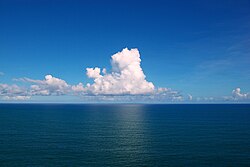Chemicals/Oxidanes/Quiz

Oxidanes is an effort, in a lecture format, to describe a specific chemical of the elements hydrogen and oxygen: water.
You are free to take this quiz based on the lecture oxidanes at any time.
To improve your score, read and study the lecture, the links contained within, listed under See also, External links, and in the {{chemistry resources}} and {{geology resources}} templates. This should give you adequate background to get 100 %.
As a "learning by doing" resource, this quiz helps you to assess your knowledge and understanding of the information, and it is a quiz you may take over and over as a learning resource to improve your knowledge, understanding, test-taking skills, and your score.
Suggestion: Have the lecture available in a separate window.
To master the information and use only your memory while taking the quiz, try rewriting the information from more familiar points of view, or be creative with association.
Enjoy learning by doing!
Quiz
[edit | edit source]
Hypotheses
[edit | edit source]- There is at least one chemical unique to Earth.
See also
[edit | edit source]External links
[edit | edit source]- African Journals Online
- Bing Advanced search
- Google Books
- Google scholar Advanced Scholar Search
- International Astronomical Union
- JSTOR
- Lycos search
- NASA's National Space Science Data Center
- NCBI All Databases Search
- Office of Scientific & Technical Information
- Questia - The Online Library of Books and Journals
- SAGE journals online
- The SAO/NASA Astrophysics Data System
- Scirus for scientific information only advanced search
- SpringerLink
- Taylor & Francis Online
- WikiDoc The Living Textbook of Medicine
- Wiley Online Library Advanced Search
- Yahoo Advanced Web Search
